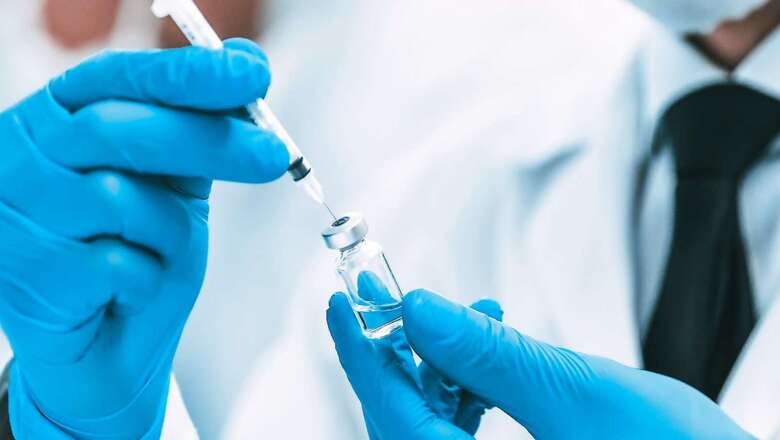
views
The government’s new draft on the drugs and medical devices bill will regulate Sowa-Rigpa (ancient form of holistic healthcare), homeopathy and online sales of medicines, and proposes stricter penalties on deaths during clinical trials among other provisions.
News18.com had first reported in September about the government’s move to form a panel to frame laws for medicines, cosmetics, and medical devices under the drug controller general of India, VG Somani.
The draft bill, uploaded on the health ministry’s website, seeks suggestions, comments, and objections from the public and stakeholders within 45 days from the date of issue of the notice (July 8).
So far, medical devices have been treated on a par with medicine, and there were no separate rules to regulate the sales, manufacturing, distribution, or clinical trial of such devices in the country.
“The Drugs and Cosmetics Act, 1940 is pre-Independence legislation enacted by the Central Legislative Assembly. Review of obsolete laws and updating of the existing laws is a continuing process to accommodate changed requirements and adaptation of new technology,” the ministry said.
The government has stressed the need to review obsolete laws and to “periodically repeal and amend laws” for which the Bill has been brought before Parliament, according to the ministry.
“As per recommendations of the Committee, the Ministry of Health and Family Welfare, Government of India proposes a draft New Drugs, Medical Devices and Cosmetics Bill, 2022 in order to keep pace with changing needs, times, technology.”
A Separate Chapter on AYUSH
For the first time, the draft bill includes a separate chapter for AYUSH drugs, which proposes to regulate Sowa-Rigpa and Homeopathy whereas the existing act only regulates Ayurveda, Unani and Siddha drugs and cosmetics.
Informally labelled as ‘pseudo-science’, AYUSH therapies and drugs have often received criticism due to lack of scientific evidence.
Now, the bill proposes to establish a scientific research board to support the regulatory authority on the advances used for developing innovative drugs of Ayurveda, Siddha, Sowa-Rigpa, Unani, and Homoeopathy, their safety and efficacy, making devices, and other related matters.
It also said the central and state governments should encourage the use of modern science and technology to develop innovative drugs and devices in Ayurveda, Siddha, Sowa-Rigpa or Unani.
Online Sales of Medicines
While the regulation of e-pharmacies or online sales of medicines has been a long-awaited move, the draft bill does not carry a separate chapter or detailed regulations to boost the growth of e-pharmacies in India. The discussions to regulate the online sales of medicines has been going around for at least six years.
Instead, the draft bill suggests that the central government formulates rules for regulating online pharmacies.
It also mentions that “no person shall himself or by any other person on his behalf sell, or stock or exhibit or offer for sale, or distribute, any drug by online mode except under and in accordance with a licence or permission issued in such manner as may be prescribed.”
It also bars such sales for the category of medical devices.
New Definitions
The 83 paged-draft includes several new definitions. For instance, it explains the meaning of a “bioavailability study” as a study to assess the rate and extent to which the active drug is absorbed from a pharmaceutical formulation and becomes available in the systemic circulation or availability of the drug at the site of action.
Similarly, several other terms, commonly used in the current context include bioequivalence study, over-the-counter medicines, medical device, medical device officer, predicate device among others.
For instance, new drug has been explained exhaustively in five points. In the first one, it describes new drug as “a drug, including active pharmaceutical ingredient or phytopharmaceutical drug, which has not been used in the country to any significant extent, except in accordance with the provisions of the Act and the rules made thereunder, as per conditions specified in the labelling thereof and has not been approved as safe and efficacious by the Central Licencing Authority with respect to its claims.”
Medical Devices are No More Equal to Drugs
So far, there was no separate, official definition of medical devices as they were treated on par with drugs. In the draft, a comprehensive definition of medical devices has been proposed.
“All devices including an instrument, apparatus, appliance, implant, material or other article, whether used alone or in combination, including a software or an accessory, intended by its manufacturer to be used specially for human beings or animals which does not achieve the primary intended action in or on human body or animals by any pharmacological or immunological or metabolic means, but which may assist in its intended function by such means for one or more of the specific purposes…”
The draft bill also proposes medical device testing centres on the lines of drug laboratories in states and at the central level.
Stricter Penalties under Clinical Trials
The penalties while conducting clinical trials have been enhanced. The draft also proposes that if any person (sponsor, clinical research organisation, any other organisation or investigator) fails to provide the required medical management or compensation shall be punishable with imprisonment, which may extend to one year, or with a fine which shall not be less than twice the amount of compensation.
Also, in case of death during the clinical trial, attributable to the study drug or on account of his participation in such trial, the company should provide compensation to the legal heir of the participant.
Under the existing act, there is no provision to impose stricter penalties such as imprisonment for the failure to provide compensation to trial participants in the clinical trial.
Forming of New Advisory Board
In chapter second, the bill proposes to form a separate Drugs Technical Advisory Board (DTAB) and Medical Devices Technical Advisory Board (MDTAB) who would advise the central government and the state governments on technical matters pertaining to drugs and cosmetics related to implementing this act and other functions.
The board is proposed to consist of several members including the chairperson of director general of health services and member secretary of drugs controller general. A similar proposal has been drafted from MDTAB.
Read all the Latest News, Breaking News, watch Top Videos and Live TV here.
















Comments
0 comment